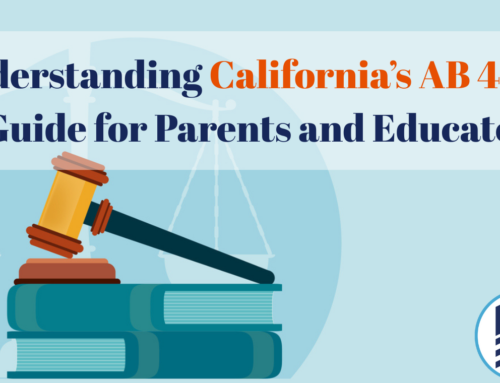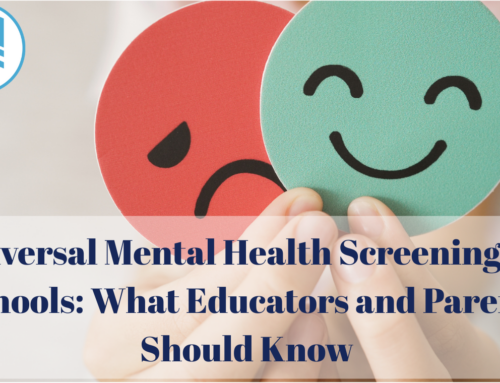
Do you find yourself intrigued by politics? Have you ever considered that you could be the one to run for office?
You know your community and school district could use some changes. That starts with local politics like the school board, mayor, or city council. These positions make decisions about education policy and funding that directly impact school policies, which in turn affect the community. That’s why you need to run for office.
But how do you know if you’re qualified to run for office? And where would you even start? Maybe you’ve dreamed about running, but you’re not sure if you’re the right person for the job.
Well, have no fear! We’ve put together some advice to run a successful local political campaign from politicians and experts who’ve been there. You may be surprised by how qualified you are for the job.
Consider what sets you apart as a potential candidate
Has anyone told you to run? If so, that might be a big clue that you should start campaigning.
That’s how it was for Dorothy Dowe, who currently serves on Greenville City Council in North Carolina. She had a “volunteer career” for some time, serving on several boards and helping with side projects for organizations. Through her involvement, the idea of running for office was born.
“Throughout that time in my life, regularly people would whisper in my ear and say: ‘When are you gonna run for office?’” Dowe shares. “So I guess it was a connection of whatever skill sets I had to the job of being an elected official.”
Generally speaking, people should already be convinced that you need to run, rather than you convincing everyone else that you should run. Since you’re trying to get votes, you need people that are already excited about getting you into office.
But what is that quality—or qualities—that people are looking for, you might ask?
The Greenville County Democratic Party (GCDP) found among candidates that there was no single innate quality that set them apart as politicians. What they saw was that “candidates, like the people they serve, should be diverse in terms of their background, identities, training, strengths, and personalities.”
That said, the GCDP reports, “What is common to all good candidates is a willingness to work hard, a desire to learn, breadth of experiences, and commitment to building a supportive network.”
Dr. Mark Smith, former member of the Ohio State Board of Education and currently serving on the South Carolina Commission on Higher Education, adds to that idea. In an interview with NWEF, he gives this advice for running a campaign: “Work hard, work smart. The operative word is ‘work.’ You will not lose if you work. Working people win elections.”
If you’re interested in running for a local election, you’re likely already prepared to put in the effort to make a difference. So, if you have the drive, what is something you can bring to the table?
Utilize your past experiences
You don’t have to have years working on Capitol Hill to run for office. Really. Instead, think about your prior experience or knowledge you’ve acquired that could be useful.
Did your job require you to meet new people? Were you in a leadership position? Maybe you gave regular presentations, which strengthened your public speaking abilities. These are all relevant skills you need to campaign.
You don’t need to be a politician to run for office.
Take Kathy Tran, who’s in Virginia’s state legislature, for example. She says her only political experience was serving as president of the Parent-Teacher Association at her kids’ school. She didn’t even have political aspirations until she felt the calling to run and make a difference.
As for Patsy Terrell, who beat an incumbent and served in the Kansas House of Representatives, she took advantage of the skills she learned in what would seemingly be an irrelevant field. “I have no political experience, but I do have a background in marketing and advertising and public relations,” she says. “All of those were very useful skills in running for office.”
For Bryce Reeves, a state legislator from Virginia, it was his prior experience in sales that came in handy. He knew how to make phone calls to ask for donors. And he knew not to take rejection personally! “My salesman skills helped,” Reeves says. He adds that his experience as a U.S. Army Airborne Ranger prepared him for the challenges of campaigning.
Of course, it doesn’t hurt to have some relevant volunteer experience. “The extent of my political experience before had been being a voter and just doing some entry-level volunteering on a campaign—knocking on a few doors and making a couple of phone calls,” shares Brett Parker, who beat an incumbent for the Kansas House. “So I hadn’t had to think through how you put together a campaign team and structure.”
But here’s the bottom line: “There’s a lot to learn, but…no one has a monopoly on how to do it well,” Parker says. “And bright people can figure it out and put together a winning team. You don’t have to have 50 years of experience to run a local campaign well. You just have to learn as much as you can in a hurry.”
So, while you may have never held a political office, your background may provide more qualifications than you think.
Learn how to fundraise
At this point, you may be wondering how can you afford to run. Especially if you’re not rolling in cash.
Believe it or not, not every political candidate has deep pockets.
When Lacey Cotter Rzeszowski ran for New Jersey Legislature, she wasn’t blessed with the wealth or network of rich friends that some candidates have.
“The first challenge is to get your name out there, and that costs money,” Cotter Rzeszowski says.
To compensate, she had to work hard to network, fundraise, and ask friends for support. She recommends trying to get more small donations instead of a few large donations. “If you’re coming from a situation where you don’t have friends with deep pockets, it’s not always about that depth of pockets but how large that network is,” she advises.
Along the way, Cotter Rzeszowski learned how to ask for funding and get help from politically active groups. She also had to prepare for how her family might be financially impacted. In her situation, her husband provided for the family. “The lifestyle component had been determined before deciding to run the race—that it was something we could manage personally,” she shares.
Cotter Rzeszowski ended up losing a close race against an incumbent, but her experience enabled her to start a business to help campaigns.
So, what’s the point? While it’s not glamorous, you need to get accustomed to asking people for money. As U.S. News points out, fundraising is one of the most vital parts of a campaign.
Do your research to see how much funding you need before starting a campaign. For that information, you can visit the Federal Election Commission to see how much previous candidates have spent on their campaigns to get an idea of what your campaign might cost.
U.S. News recommends starting with local positions instead of national ones. This could mean county supervisor for example, instead of U.S. Congress. While most people are more familiar and often more invested in national politics, it’s financially easier to start at the local level. Local elections also make it easier for you to keep your current job as you’re running.
Some people decide to quit their jobs and devote all their time to campaigning, but that’s not realistic for every candidate. If you do decide to keep working, make sure your employer is aware that you’re campaigning. They may be willing to work with you, whether it’s a longer lunch break or a few extra days off.
A humble economic background can work to your advantage as you’re campaigning. If you’ve struggled financially, people can relate to that. Your voters may be able to get behind you more easily if your story resonates with them.
Don’t forget! As you’re working on a donor base, you must be present on the political scene in meaningful ways, such as volunteering. That way, you’re making your presence known and helping people associate you with positive community action.
Tap into your existing network
By now, you’ve probably realized that you’re going to need lots of support—and not just in a financial sense. If you’re going to enter the political arena, you need the encouragement of those closest to you.
Brian Campbell, former mayor of Ranchos Palos Verdes, California, says you must talk to your family and friends before anything else. Campaigning and serving in a public office will inevitably put demands on your family, and it can be miserable if you don’t have their support. You’ll also likely want them to be involved in any way possible.
Letitia Clark, who serves on the city council of Tustin, California, immediately went to her loved ones before running for office. “The first thing I did was talk to my family,” she says. “I sat them all down. I’m a single parent so I had to sit down my parents and my siblings because they all helped out with my kids. I sat down the guy I’m dating, too. I told them what I wanted to do, and I asked them if they’d be willing to support me—that meant picking up the kids, cooking dinner sometimes, helping with homework, giving me time to take a nap and things like that if I needed to. Also coming to events, asking friends and colleagues for fundraising money, making sure that they were staying out of trouble and not racking up a bunch of parking tickets. All of that. And after about two or three hours of discussing the pros and cons, all of them said, ‘Yes, we’re all on board, we’re behind you 100 percent.’ And once I had that, then I could move forward.”
Once your family and friends are backing you, you need assistance from more people, as Greenville City Council member Dorothy Dowe realized. “You need a broad network of people to support you,” Dowe says.
For Kansas House Representative Brett Parker, he strengthened his network by reaching out to friends and family and utilizing social media. But he was surprised by other ways he could get support.
“One of the things that I didn’t know at the time would really help with fundraising was just getting face to face with people—you build credibility that way and then those who don’t know you but are inclined to vote for you or donate to a cause like yours feel more comfortable than with you calling as a stranger on the phone,” Parker shares.
Finding local political party groups can also be a great way to gain support. Doing so “can point you in the direction of getting to know who the donors are in a community,” says David Avella, chairman for Global Organization of Parliamentarians Against Corruption. These groups can turn into supporters and volunteers.
Consider what you’re already involved with. Maybe it’s a local church, community, or some other kind of organization. You may be surprised by the people who are willing to help your cause.
Build your team
With your newly found loyal supporters, your next step is to assemble them into a campaign team. So, what does a winning campaign staff look like?
Call Hub, a political communication software, lists some positions you’ll want to consider having on your campaign team. These include a campaign manager, a fundraising director, a campaign treasurer, a communications coordinator, a political consultant, and a chief information officer. Having these roles can lift some of the burdens off you so you can focus on being a candidate. Of course, if you’re working toward a small local election, one or two people might take on several of these roles!
Scot Faulkner, a Chief Administrative Officer from Massachusetts, knows that a team can make or break you. “Who you work with is the root cause of success or failure,” he says. “Success comes surrounding oneself with trusted, loyal, capable people. Those who do not make personnel their primary focus will suffer leaks, treachery, and failure.”
Volunteers will be another critical component of your campaign team. They can help complete the work that you physically cannot achieve in a short time. Patsy Terrell discusses the value of people who were willing to help:
“Politics is not a solitary activity. You have to have a team of people around you who believe enough in you to devote time and energy to getting you elected. And you know, some people will give you two hours on a Saturday afternoon, and some will give you a tremendous amount of their time. I had a volunteer who knocked on about 2,500 doors for me. And that kind of engaged volunteer can make or break a campaign, because there’s just no way you can do it all on your own. Now everyone I meet tells me how much they believed in me, but when I first started this, there were a handful of people who believed it could be done. And they put a tremendous amount of effort into it.”
Maybe you have a large group of family and friends who are willing to put in the work to help you. That’s great! You’re going to need as many hands on deck as you can to get your message out.
Be prepared to expand your network
Hopefully you like making new friends—because that’s what you’re going to do nonstop as you’re running for office. But you’ll have to be intentional about it.
In his interview with NWEF, Dr. Mark Smith shared his insight about networking. He recommends meeting weekly with corporate leaders, state and local representatives, both Republicans and Democrats, so people know who you are.
“I never leave a stone unturned in meeting with people to build a coalition,” Smith says. “I did a landscape study. There were three groups in town: college, pastors, and businesses. I started meeting with key groups and getting involved in them. All done before the appointment or local race. I had to work, work, work. Every single detail matters.”
To find potential connections, Dr. Smith suggests reading the paper to find names or even asking “Who do I need to know?” around the community. Dr. Smith provides this template for asking for a networking opportunity:
“‘Can I have lunch with you? I’d like to be involved in ______.’ Then I would follow through and prove that I would do what I said. ‘Would you have lunch with me? I want to learn from you.’ Then I would ask ‘Who are three other people I need to know?’”
Dr. Smith says he has lunch with someone every day. He sets aside money each year to network with people over a meal. “Learn from them, then you build relationships.”
Get good counsel
To win your election, you’re going to need some guidance. Since there are many responsibilities associated with campaigning, you need wise people around you to not only provide critiques, but also to give direction.
Brian Campbell says you need to surround yourself with people who can be a sounding board and give good, honest advice. You need to meet with these people regularly to get feedback on your ideas.
Letitia Clark found a highly regarded person in her community to help her fundraise as a campaign manager. “What I learned from her is that elections are definitely more a science than an art— there are certain things that you can do to be sure that you reach as many people as possible,” Clark shares. “It becomes a numbers game at a certain point as long as you have the right message and you’re relating to people in the community.”
With good guidance, you can ensure you’re doing effective work.
Conduct your own research
Deciding to run for office takes time. You’re probably not going to wake up one morning and say “Today’s the day I’m running for office.” You’re already busy with your own life, so there’s a lot to take into consideration before you take the leap to start campaigning.
For Dorothy Dowe, the idea to run started forming about twenty years ago. During that time, she prepared herself for office. She carefully planned for the right time, researching available seats on the city council and finding where she could potentially win.
As you plan your journey, take some time to research and think through what will work best for you.
Kiplinger suggests including campaign rules and requirements for office in your research. Common requirements include an age minimum and residency rules. It’s also important to consider who you might be up against. For Kathy Tran, her incumbent opponent was retiring, increasing her chances of winning.
You’ll also want to prepare for what the campaign process entails. Candidate Boot Camp has put together an in-depth guide and timeline to help you visualize what campaigning looks like.
Fortunately, there are many resources online that can help you find what you need as you plan your campaign.
Where to start
So, by now, you know you need to start researching. But where do you start? And how do you know what to look for?
Here are some places to begin:
- You can go to runforoffice.org to see what’s available for election in your district.
- A resource like usa.gov/election-office can show your state’s election website. This site can help you find what you need to run for office in your area.
- Discover your local election office and other voting-related information on usvotefoundation.org.
- Ballotpedia is an excellent resource for finding anything related to American politics. You can find information on current politicians, recent elections, and details on how to run for office in each state.
Spending time on these sites can help you plan out when you may be able to run and solidify a campaign strategy.
Know why you’re running
This is the crucial part. What is it that makes you even consider running for office?
Scot Faulkner says that politicians can easily lose sight of the reason they first ran. Often, they forget what’s important in the quest for power. He advises candidates to always remember why they wanted to be in office.
Your reason why doesn’t have to be complicated. Based on inspirational speaker Simon Sinek’s “Find Your Why,” Forbes says that your driving motivation reason can simply be to help others.
So, why are you wanting to run for office? Think it through and let that be your driving force. It’ll also be why people will want to get behind your mission.
Get started
What can you do today to start your campaign journey? For additional resources, you can visit sites like NationBuilder or The Leadership Institute that provide courses on running a successful campaign. If you’re thinking through what position you want to run for, the school board or county supervisor can be great starting positions.
If you’re still not sold on the idea of running, you can always get your foot in the door through volunteering. Here are some ways you can get involved:
- Attending school board meetings/county meetings and voicing your concerns
- Volunteering for a campaign
- Volunteering at the polls on election day
It all starts with taking one step in the right direction. From there, we can begin making the change that we want to see.
Want more? Sign up for updates to stay informed about ways you can make a difference.





[…] on your locality, running for council member or commissioner may give you legislative and policy-making responsibilities in your town. These policies often deal […]